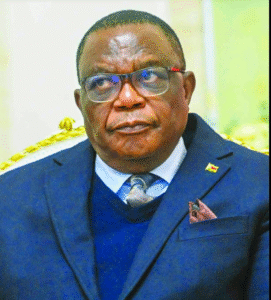ZIMBABWE’S MINERAL RICHES PUT IT AT THE CENTER OF A GLOBAL POWER STRUGGLE

Zimbabwe is now at the heart of a dangerous and growing global competition. As the world rushes into a new era shaped by technology, energy, and military power, the focus has turned to one unlikely place—our small Southern African nation. But Zimbabwe’s rich mineral resources have made it a key player in a new cold war between powerful nations from the East and West. At the center of it all are the minerals that power the future—lithium, platinum, diamonds—and the global race to control them.
On one side, there is the West, led by the United States and the United Kingdom. On the other side, rising powers China and Russia are becoming more aggressive in their push to dominate resource-rich regions like Zimbabwe. This is not just about money. It is about global control, power, and influence for the decades to come. And Zimbabwe, with all its minerals, is now one of the main battlefields.
To deal with Zimbabwe, the West has used sanctions. These sanctions were meant to push our government to respect democracy, human rights, and the rule of law. The UK government has said clearly that it wants Zimbabwe’s leaders to stop abusing civil society, stop repressing free voices, and start respecting basic freedoms. Sanctions include freezing the assets of certain individuals who are accused of corruption, abuse of power, and destroying democratic institutions.
But now, with China and Russia digging deeper into Zimbabwe’s mineral wealth, the conversation is shifting. The West is starting to realize that if they don’t act fast, they may lose access to some of the world’s most important resources—resources needed to build electric vehicles, power mobile phones, make solar panels, and drive the energy of the future.
Take lithium, for example. It is called “white gold” for a reason. It is now one of the most valuable minerals in the world because it powers rechargeable batteries used in cars, phones, and even military gear. Zimbabwe has some of the largest lithium deposits in Africa. And China is already ahead, building lithium mines and sending tons of raw materials back home to support its industries. Russia is also slowly increasing its presence, using diamond deals and other mineral contracts to grow its influence.
This shift in focus means that the West may now have to rethink how it deals with Zimbabwe. Sanctions aimed only at promoting democracy may not be enough. There is now talk among UK lawmakers of expanding the strategy—to look not only at human rights but also at the bigger picture of who controls our minerals. There are fears that if Zimbabwe continues to allow China and Russia to dominate the mining sector, Western countries could be locked out of the global supply chain of key strategic resources.
This is not just a Zimbabwean issue. It is a global issue. Across the world, powerful nations are watching each other and making moves. Countries are now blending politics, economics, and foreign policy in new ways. The race for resources is part of the race for global control. That is why Zimbabwe is no longer just another country under sanctions. It is a key player in a much bigger game.
What this means is that the world must now walk a difficult path. How do you promote democracy and human rights in Zimbabwe while also competing for the minerals that power the world? Can these goals go together? Or will one always come at the cost of the other?
Zimbabwe finds itself in the middle of this storm. Our leaders are cutting deals with China and Russia. Our minerals are leaving the country without value being added locally. And the people—ordinary Zimbabweans—are still poor, still jobless, and still without basic services. The risk is that while the big powers fight over our resources, we will be left with empty holes in the ground and a destroyed environment.
This moment is critical. What happens next will shape not only Zimbabwe’s future but also the direction of global politics. The choices made now—by our leaders and by the world—will decide if Zimbabwe becomes a shining example of smart, fair, and just development, or just another poor country stripped of its wealth by powerful outsiders.
The world is watching. And Zimbabwe must choose wisely.



